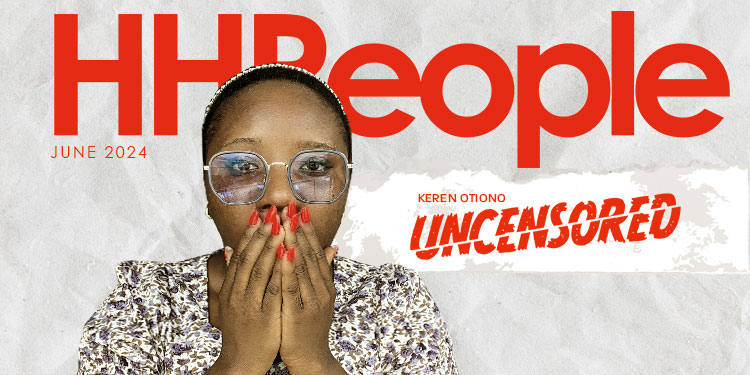Hi, my name is Keren, and I am an undiagnosed high-functioning autistic female. I have been to therapy twice and I am still healing every day. I am sharing this now because I have fought so hard to be a better person. I never want to be defined by my weaknesses. I have tried to teach myself things that do not come naturally to me. While I am aware of some of my shortcomings, I work very hard to improve every day. I never want anyone to feel sorry for me, nor do I want to be treated differently.
I thought long and hard about sharing this because very few people in Nigeria believe in mental health awareness. People still shame you when you say you are in therapy. They think being in therapy means you are crazy. There’s a lot of stigma attached to therapy. Some people believe terms like ADHD, ADD, anxiety disorder, and bipolar disorder are just excuses Gen Zs use to avoid work. I got my diagnosis a few years ago after taking several online tests, and suddenly, everything started to make sense.
I struggle with social cues and rarely make eye contact. I am so blunt and honest that I sometimes come across as rude. I am always the one who never gets the joke. I am very literal and struggle with many other things. Growing up, I never understood why I didn’t fit in. As I grew older and began to understand this, it all made sense. I have had women reach out to me on Twitter, admitting they feel the same way but are too ashamed to say it because they fear being judged. These women are also in the corporate world.
I have also struggled with depression. In my early 20s, I developed a speech impediment due to trauma. I couldn’t make full sentences, speak clearly, or avoid mumbling my words and speaking too fast. It was so bad that people would laugh at me, making me very uncomfortable. With the help of a friend, I re-taught myself how to speak better. I took speech training and started learning to breathe and speak more slowly.
I had a friend diagnosed with bipolar disorder; that was my first encounter with bipolar. She was placed on antidepressants but hated taking them because they made her feel numb, so she stopped. Living with her was a whirlwind due to her erratic mood swings. Some days she was hyperactive, dancing and playing music loudly. On other days, her mood would be so bad that she’d be sad, sulking, and hating herself. I dreaded going out with her, especially during her episodes. She would frustrate drivers to the point where they’d ask if she wanted to take over the wheel. This is not to say people with bipolar disorder are bad, but to highlight that these conditions exist and, if not properly managed, can be chaotic.
I share these stories to emphasise that mental health disorders are real. They are not just Gen Z terms; people genuinely struggle with them and often stay silent for fear of being judged, especially in work environments where vulnerability is not welcomed. If you tell HR, “I can’t come to work today because I’m having a meltdown or I am depressed,” they’ll say you are making excuses. Unlike malaria or fever, mental illness is invisible but no less painful. While some people may abuse the system, it is crucial not to make mental health an exception. How do we address these situations humanely while ensuring compliance with company policies?
I think every organisation should consider partnering with mental health awareness agencies. Just as we have benefits like HMO and gym memberships, we should also have access to therapists. In my previous job, one manager was a bully, causing many employees to either leave the company or end up in therapy. Many people are not comfortable reporting to HR but are honest with their therapists. When the mental health agency escalated the issue to the company, measures were taken to address it. Often, HR personnel lack the empathy or skills to handle mental health issues, focusing more on implementing office policies. Sometimes, the HR personnel or the boss might even be the bully. Who do you report to then?
I am thankful for organisations like Heirs Holdings, where checks and balances are in place, ensuring even bosses are accountable. It is essential to be open-minded and accommodating to people with various disorders. Don’t laugh at what you don’t understand, and don’t invalidate people’s feelings.
Organisations should partner with mental health awareness agencies. We spend 70% of our lives at work, and it is crucial to feel safe there. Many people are in toxic workplaces and cannot speak up. People are going through a lot, and the suicide rate is increasing. In Nigeria, we often attribute everything to religion, suggesting prayer for those who are depressed or struggling. While prayer is not bad, people should be encouraged to be vulnerable and share their struggles. Ask for help, but it also matters who you talk to.
We all need to challenge the status quo and recognise the importance of mental health awareness. Let us be kinder and more understanding toward others. Let’s be open about our struggles and let Mental Health Awareness Day be more about people sharing their struggles and less about HR fulfilling their OKRs and bringing fake woke people who have no idea what it truly means to deal with mental health issues to speak to us.
HR folks are great. They juggle payroll, mediate office dramas, and remind us to fill out those never-ending forms. But they are not mental health professionals.



Thanks for sharing Keren.